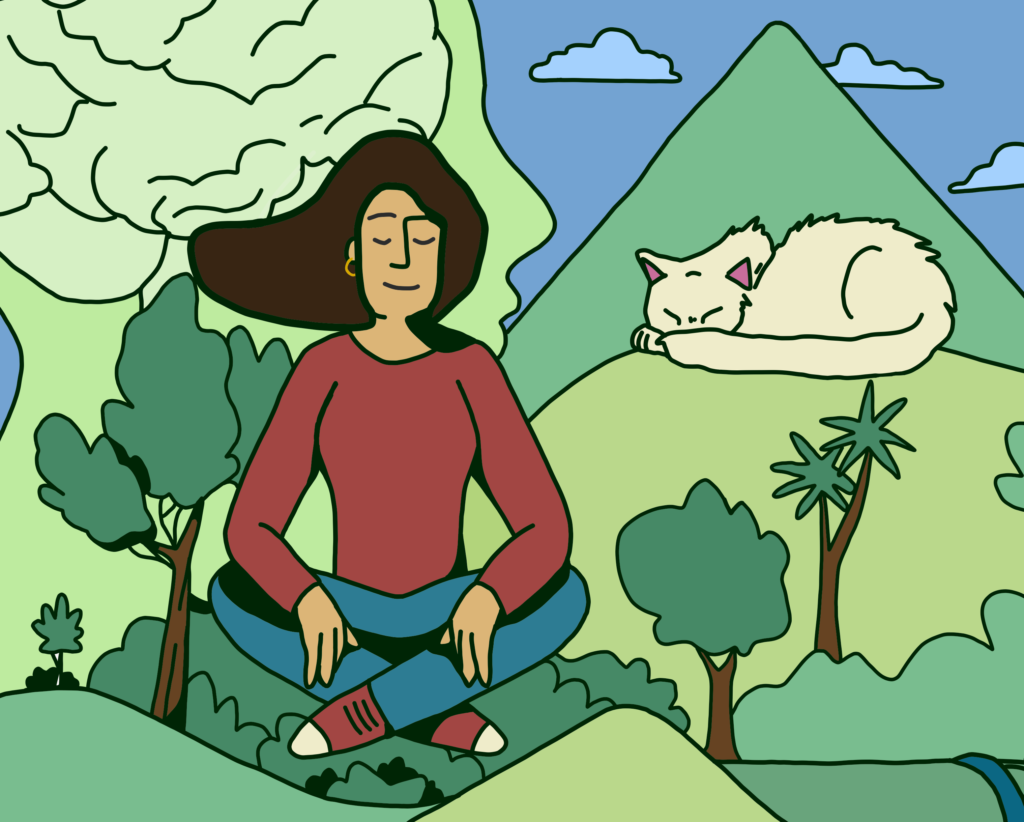by Alanis Gonzalez
gonzalez@grinnell.edu
TW: Suicide.
I got the call on Monday afternoon. I was walking back from Saints Rest after studying for my Latin exam for a couple of hours. I didn’t cry, only because I didn’t think what the other end of the line said was true. It couldn’t be. They were a kid. They were only fifteen. And they seemed fine.
Two of those statements are true. They were a kid, and they were only fifteen. But they weren’t fine.
For the sake of maintaining the privacy of my community as well as the family, I will not be using names or pronouns. But even without disclosing the details, I decided that this week, we all need to have a talk. It’s the conversation no one ever wants to have until the worst outcome could possibly occur, and then suddenly we all can’t stop talking about it, contemplating how it could have been prevented, how we all could have missed the signs. After this week, I can’t have these conversations ever again. So instead, I’m starting a different conversation, the one that seeks to prevent the worst.
Grinnellians, we need to talk about suicide. It’s a word many hesitate to say, and even now, amid the events that have unfolded, I myself have had difficulty saying it out loud. The harsh and tragic truth is that no matter how much none of us want to say it, death by suicide remains prevalent throughout our society. According to The National Institute of Mental Health, death by suicide is the 10th leading cause of death in the United States. Jarringly, it is also the second most common cause of death in people ages 10-34. In 2019, the number of deaths by suicide was double the number of deaths by homicide.
I need everyone to just process that for a minute. The second most common cause of death between the ages of 10-34 is death by suicide. These are some of the youngest people within our society. What does this say about us, and the conditions that we are putting young people in or, from another angle, the lack of resources that we as a country are providing for those amongst us who are most vulnerable?
I think it symbolizes a collective failure on all our parts; a failure to put aside the rigorous conditions of our lifestyles, to put our guards down just for one moment to take care of one another. And I’m not saying this from a point of judgement. I’m saying it because I myself feel like I failed.
I remember this kid. I was around them for months. I can remember remnants of their voice, their laugh, the way they always ran everywhere. But I never got close, not the way I did with their peers. I assumed they were fine, that they didn’t need me. Because they seemed okay, because they never reached out, and truthfully, because of my own social anxieties, even with those under my mentorship. I have walked around for days, moving from class to class, laughing with friends, running errands, and in the back of my mind all I can process is guilt. What could I have done better, as an adult in their sphere? What could I have changed, so that they would know what it felt like to drive a car, fall in love, move out of state? It hurts me to accept that I’m too late. As so many in my community have realized, we all are. Do not let this happen to you or anyone you know. The Real Depression Project has plenty of free tips on how to support people suffering from depression, anxiety, as well as suicide prevention guidelines. Most of us are not trained to deal with mental health issues, but we can stay informed so that we can support those around us as we help them find the proper channels to heal. Other resources include the suicide prevention lifeline (1-800-273-8255) and the crisis text line (741-741), both of which are available 24/7.
I do, however, want to emphasize that it cannot only be an individual’s responsibility to reach out. Check in with each other. Provide spaces for your friends, family and partners to feel safe being vulnerable. And don’t ever assume that you know what’s going through a person’s head, or the conditions of their life. Even if you think everyone is doing okay, it never hurts to ask. Words may not be as weighted as actions, but if there’s anything I believe after writing this column and receiving the responses I’ve gotten, I have to believe words are worth something.
To the life that has been lost: I’m sorry. I’m sorry we weren’t there for you. I wish we could have helped you carry whatever weight burdened you to such a degree that you felt you couldn’t hold it anymore. I’m sorry to your family, who has experienced one of the worst weeks of all their lives. I wish I could go back, and at least try to let you know that you weren’t alone, that you had found this column, that you could have known how many of us understand what it means to have a painfully chaotic mind. I wish, after everything, that I could write your name, because it deserves to be said, because you are important, intelligent, and it is our fault for not taking better care of you.
To my community: My heart and mind is with you, even as I am so far away. Take care of each other. We cannot let this happen again.
To my Grinnell community: if anyone reading this needs a hand, but isn’t ready to take the next steps, drop me a note. Let’s talk.
























































